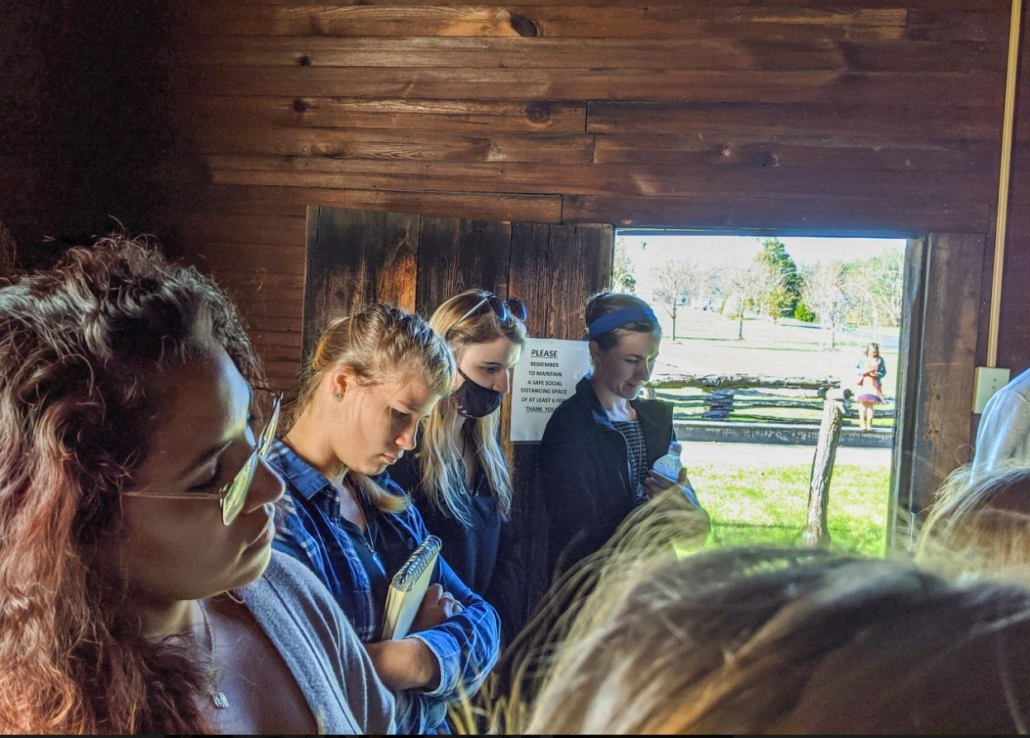Digging Deeper: Lessons from the Rechabites
Author: Mr. Kenneth Frank | Faculty in Theology, Living Education
Estimated Reading Time: 6 min.
Did you know that during Nebuchadnezzar’s siege of Jerusalem God instructed Jeremiah to unknowingly direct a neighboring nomadic tribe to disobey an ancestor’s command?
Jeremiah would learn that they had been faithful to that command for about two and a half centuries. God contrasted the obedience of these non-Israelites to the disobedience of the Jews to His commands, which eventually led to this invasion and captivity. These nomads were Rechabites, a branch of the Kenites related to Moses’ father-in-law. This Digging Deeper analyzes Jeremiah 35 illustrating lessons for Christians today.
Before we delve into this chapter, we should consider earlier historical events as backstories. In about 841 BC, King Jehu of Judah vigorously opposed Baalism in the days of wicked King Ahab of Israel because of his “zeal for the LORD” (2 Kings 10:15-16). One of his allies was a man named Jonadab (also called Jehonadab) who was from this Kenite tribe. Smith’s Bible Dictionary reports that Jonadab’s ancestor was Rechab whose house: “…is identified with a section of the Kenites, a Midianitish tribe who came into Canaan with the Israelites, and retained their nomadic habits” (e-Sword 12.2).
Who were the Rechabites?
The Rechabites were only distantly related to the twelve tribes of Israel. The International Standard Bible Encyclopedia explains: “A part of the Kenite tribe joined the Israelites during the wilderness wanderings (Numbers 10:29-32; Judges 1:16; 4:17), becoming identified with the tribe of Judah … Rechab was the ancestor or founder of a family, or order, in Israel known as the Rechabites, who at various times were conspicuous in the religious life of the nation” (e-Sword 12.2).
Wine-drinking was excessive in the Ancient Near East for Canaanite worship and its association with Baalism. During the reign of King Jehu of Judah (841-814 BC), the Rechabites joined him in a vigorous assault on Baalism (2 Kings 10:15-23). Jonadab made a family rule that they would drink no wine, like the Nazarites (Numbers 6:1-21), and that they would not build houses, nor sow seed, nor plant vineyards but dwell in tents as nomads (Jerermiah 35:6-9). Fausset’s Bible Dictionary explains this requirement: “The ascetic rule against wine, houses, sowing, and planting (Jeremiah 35), was a safeguard against the corrupting license of the Phoenician cities and their idolatries (Amos 2:7-8; 6:3-6)” (e-Sword 12.2). The International Standard Bible Encyclopedia adds further: “They followed this simple life in order to guard against the enervating tendencies of sensualism, and as a covenant of fidelity to Yahweh, to whom they wholly devoted themselves when they joined themselves to Israel” (Ibid.).
A Faithful Example
The Babylonian captivity of the House of Judah came in three waves, finalizing in 587/6 BC when the Babylonian king, Nebuchadnezzar, destroyed the city of Jerusalem and the Temple and carried away thousands of Jews as captives back to the Babylonian empire. Before Nebuchadnezzar’s siege of the cities of Judah, these Rechabites fled to Jerusalem. Jeremiah was commanded by God to set before them pots full of wine with cups in the Temple and then instruct them to drink (Jeremiah 35:1-5). They refused, not out of disrespect for Jeremiah or the Almighty, but in obedience to their ancestor’s by-gone command. For about two and a half centuries these people had obeyed their ancestor, Rechab, and would not dishonor him even at the request of Jeremiah.
God’s word emphasizes that their faithfulness to Jonadab’s decree contrasted to the utter faithlessness of the Jews to His commands (Jerermiah 35:12-17). Because the Jews refused to heed His many prophets, who called them to repent through several centuries, God punished them with captivity as had been prophesied. These Rechabites were more faithful to an ancestor’s command than the Jews were to God’s greater commandments.
The description of these ancient people who were faithful to an ancestor’s command from about two and a half centuries before is included in Holy Scripture to instruct Christians. Notice what the apostle Paul writes: “Now all these things happened unto them for examples: and they are written for our admonition, upon whom the ends of the world are come” (1 Corinthians 10:11 KJV). Paul’s point is that when we read the Old Testament, Christians are obligated to draw from it lessons for righteous living today. This story provides lessons by comparing the lesser to the greater. Joseph S. Exell’s The Biblical Illustrator contrasts the obedience of the Rechabites with Christians, who disobey Christ, with this admonition:
III. Wherein it shames Christian disobedience.
1. These Rechabites are obedient to their father Jonadab, a mere man who had been dead nearly three hundred years, while Judah is in open and flagrant disobedience to the Most High God.
2. Jonadab commanded but once, and he had instant and constant heed, generation upon generation, for centuries. “But I,” saith the Lord of hosts, the God of Israel—“I have spoken unto you, rising early and speaking. I have also sent unto you,” &c.
3. Obedience to Jonadab was at a cost, and it brought at the best only power to endure and the spirit of independence. It left the Rechabites poor and homeless. Obedience to God was also at a cost, but it gave His people assured possessions, peace of conscience, protection from their enemies, and all the exceeding riches of an eternal inheritance in God’s kingdom of grace and glory. Yet the Rechabites obeyed Jonadab with a beautiful constancy, while Judah hearkened not to the voice of the Lord. (e-Sword 12.2)
Old Lessons Made New
Again from The Biblical Illustrator, here are some positive things we should learn:
I. Wherein it resembles Christian obedience.
1. It was total. They did not consult their preferences or their “affinities.” They did not proceed upon any law of “natural selection.” They did not show punctilious fidelity with reference to one commandment, and great laxity concerning another. This is one essential characteristic of Christian obedience. It is total. If we can make choice of such commands as we feel like obeying and disregard the rest, what are we but masters instead of subjects, dictating terms instead of receiving orders?
2. It was constant. It kept an unbroken path. It bore the stress of storms and tests. And herein it was marked by another essential characteristic of Christian obedience—a beautiful constancy. Enlistment in the Lord’s army is for life, and there is no discharge in that war. (Ibid.)
This little-known aside in the Book of Jeremiah teaches Christians that, by contrast to the price the Rechabites paid for their rigorous faithfulness to Jonadab’s command, we have been mightily blessed by the God of the universe who gave His only begotten Son that we might live forever. Christian “Rechabites” who are committed to His commands will make old lessons new again.

Kenneth Frank was born and raised in New Jersey, USA, and attended Ambassador College, graduating in 1973. He served in the Canadian ministry from 1973-1999, after which he returned to the USA to pastor churches in Maryland, Virginia, and North Carolina for 15 years. Having earned a BA degree from Ambassador College he later earned a MA degree from Grand Canyon University before being assigned to the Charlotte office to teach at Living University, now Living Education. Currently, he teaches the Survey of the Bible course to the on-campus students and writes the Digging Deeper column for our online Bible study program. He is married, has four children, and seven grandchildren.






